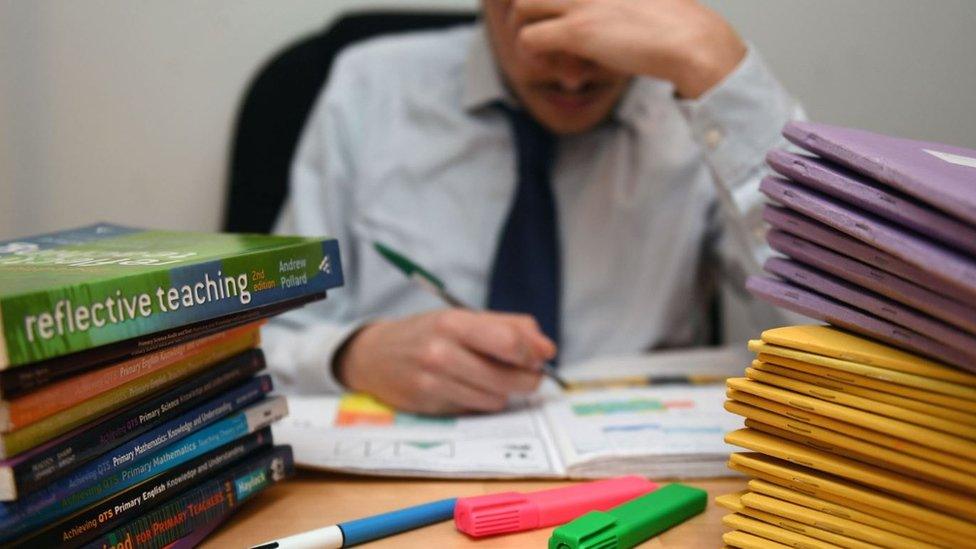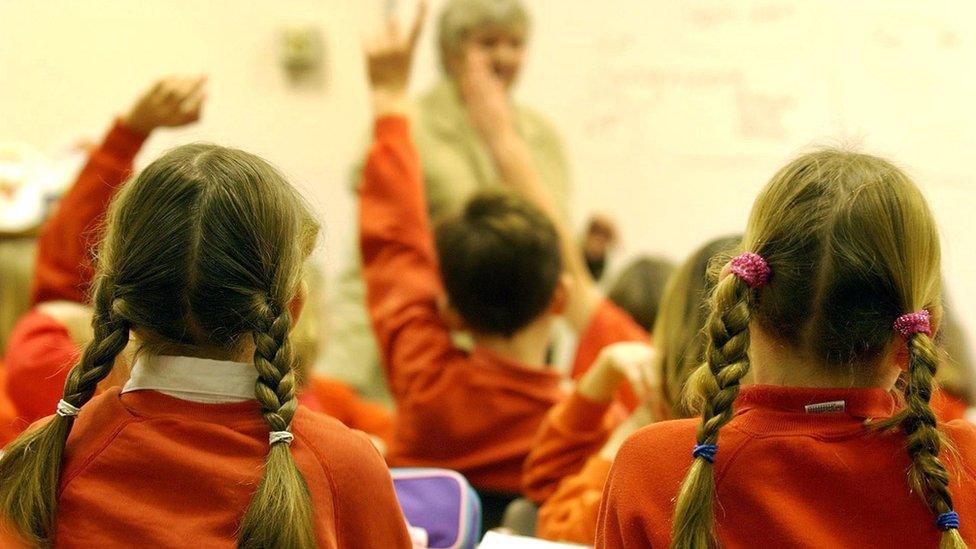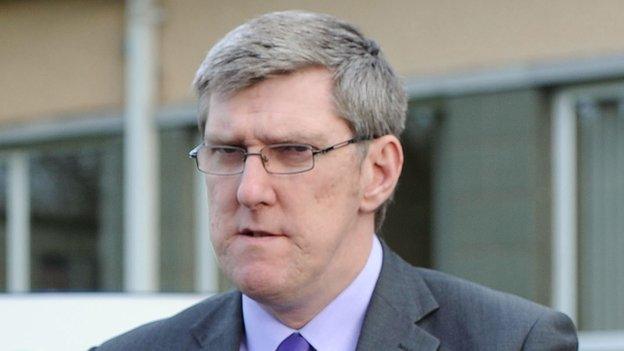Catholic RE certificate "disproportionately affects" women NI teachers
- Published

Teachers in Catholic nursery and primary schools must hold a religious education certificate
A Religious Education (RE) certificate needed to get a job in Catholic schools "disproportionately affects" the job prospects of women teachers.
This is partly because the vast majority of primary school teachers in Northern Ireland are women.
That is one of the findings of new research from the Unesco Education Centre at Ulster University (UU).
The certificate is necessary to be permanently employed as a teacher in a Catholic nursery or primary school.
The former education minister John O'Dowd had previously called for the requirement to be scrapped.

Women are disproportionately affected by the need for the certificate
There are 363 Catholic maintained primary schools in Northern Ireland.
The certificate in RE has to meet criteria laid down by the Irish Catholic Bishops' Conference.
It enables applicants to Catholic primary schools to prove they can teach in line with the church's theology and ethos.
The UU research said that meant fewer than 2% of teachers in Catholic primaries had attended controlled, non-Catholic primary schools in Northern Ireland.
"It would seem that the certificate requirement could be a significant factor in limiting cross-community teacher employment in this sector," the UU report said.
"Women make up 84% of those teaching in primary schools and very nearly all of those teaching in nursery schools."

The UNESCO Education Centre has called for change
"The certificate requirement therefore disproportionately affects women teachers' employment opportunities."
According to statistics from the General Teaching Council Northern Ireland, 7,637 of just more than 9,000 teachers in primary schools are women.
Stranmillis University College began teaching the RE certificate for the first time in September 2019 in partnership with St Mary's University College.
The UU report said that around 25% of students who entered Stranmillis to study for an undergraduate education degree in 2019 had opted to take the qualification.
Current system "should change"
The UNESCO Education Centre's Dr Matt Milliken said the way the certificate currently operated should change.
He suggested, for instance, that it should not be a prerequisite for employment as a teacher in a Catholic primary but could be something a teacher could study for after being appointed.
He also suggested that the certificate requirement should only apply to some teaching posts - like those associated with year groups being prepared for specific sacraments.
"You don't have to be a Catholic to do the certificate or to work in a maintained primary or nursery school but our research has shown, in practice, only a very small percentage of non-Catholic teachers in Northern Ireland take that path," he said.

Catholic schools in England revised their certificate a number of years ago
"Those Protestant teachers who we spoke to that had taken the certificate weren't convinced that it really prepared them for working in a maintained school - they felt that it assumed that the candidate was already deeply familiar with the Catholic faith.
"Catholic schools in England require their teachers to have a similar certificate," he added.
"Their certificate was revised some years ago to increase its relevance to non-Catholics and nearly half of the teachers that they employ now aren't Catholics."
The recruitment of teachers in Northern Ireland is also currently exempt from fair employment laws.
The chief executive of the Integrated Education Fund, Tina Merron, said that the research showed there was a need for a fundamental reform of the education system.
"The requirement for the Catholic RE Certificate for teachers in maintained primaries and nurseries, alongside the fair employment exception for teaching posts, reflects and underlines the divided nature of schools provision here.
"We look forward to the establishment of the independent review of education, pledged in the New Decade, New Approach agreement, which we hope will identify all the elements which should be addressed on the way to building a new, unified education system."
- Published13 May 2019

- Published7 June 2019

- Published9 February 2015
